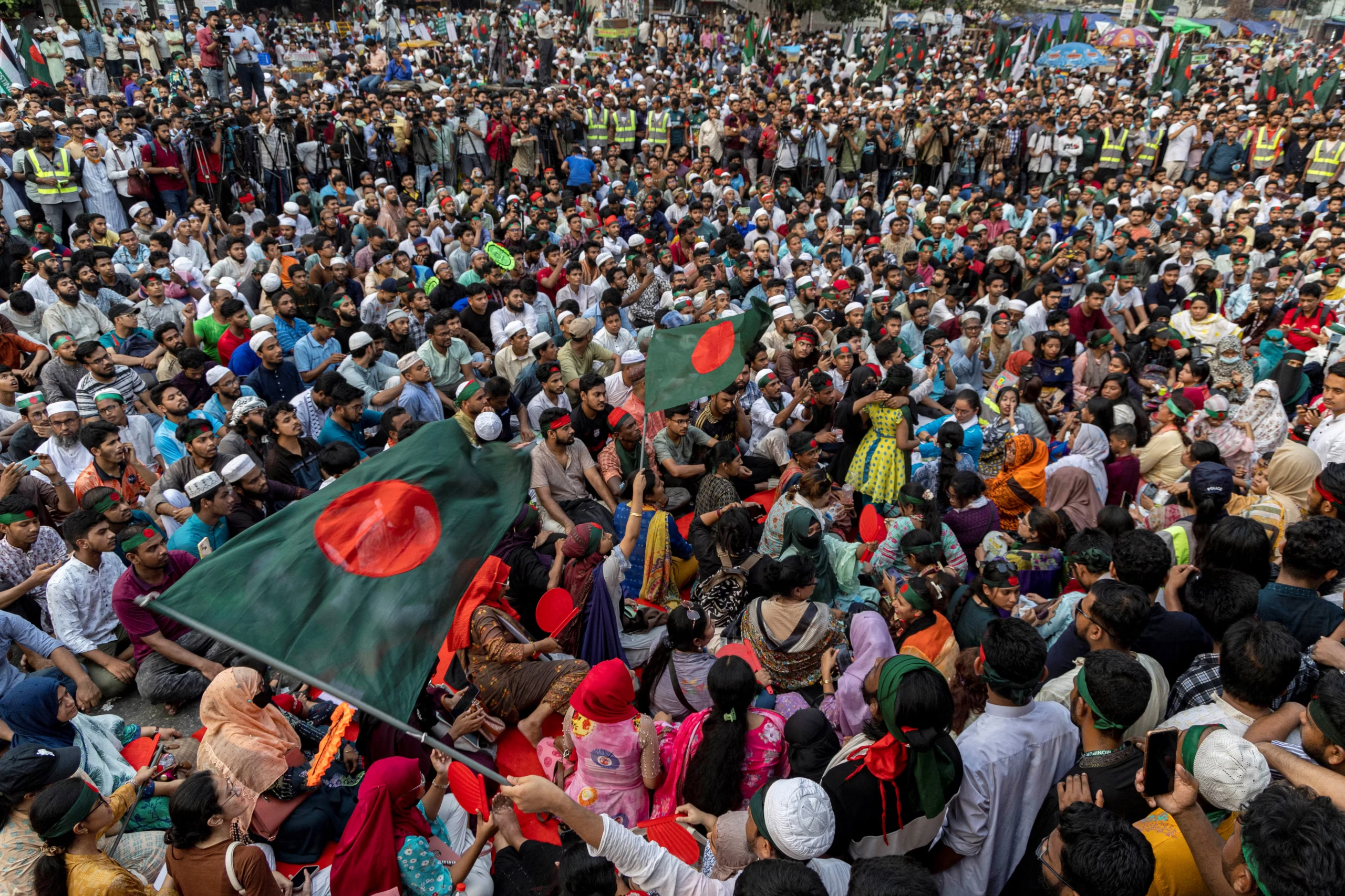Thousands are expected to flood into Dhaka on Tuesday as Bangladesh marks the first anniversary of the deadly protests that toppled Prime Minister Sheikh Hasina. The capital will host rallies, concerts, and prayer sessions to commemorate the uprising that led to her flight to neighboring India.
The day’s events will culminate in the announcement of a “July Declaration,” presented as a roadmap for democratic reforms. This initiative reflects the country’s ongoing transition from an economic and political crisis to governance under the interim administration led by Nobel Peace Prize laureate Muhammad Yunus.
“Together, we will create a Bangladesh where tyranny will never return,” Yunus said in a national message, paying tribute to those who lost their lives during the protests. He reaffirmed that his government aims to restore full democracy, hinting at the possibility of holding free and transparent elections early next year, even as labor unrest fuels calls for a faster transition.
Yunus also cautioned that “fallen autocrats and their self-serving allies remain active,” urging citizens to protect the hard-earned gains of the uprising. He highlighted his interim government’s ongoing political dialogue with parties and civil society, alongside sweeping reforms and rapid trials of those accused in the “July killings.”
Security in Dhaka was tight, with police on high alert and armored vehicles patrolling the streets to prevent any disruptions from Hasina’s banned Awami League.
In an open letter to the nation, Hasina defended her legacy, declaring that she had “never resigned” from her role as prime minister. “Bangladesh has overcome adversity before,” she wrote, “and we will rise again—stronger, more united, and determined to build a democracy that truly serves its people.”
The highly anticipated July Declaration will formally acknowledge the 2024 student-led uprising and the country’s pivot from authoritarianism to a promise of democratic renewal. It has received support from major political forces, including the Bangladesh Nationalist Party (BNP) led by former premier Khaleda Zia.
While supporters hail the declaration as a cornerstone for institutional reform, critics caution that, without a solid legal framework or parliamentary approval, its impact may remain largely symbolic.
















